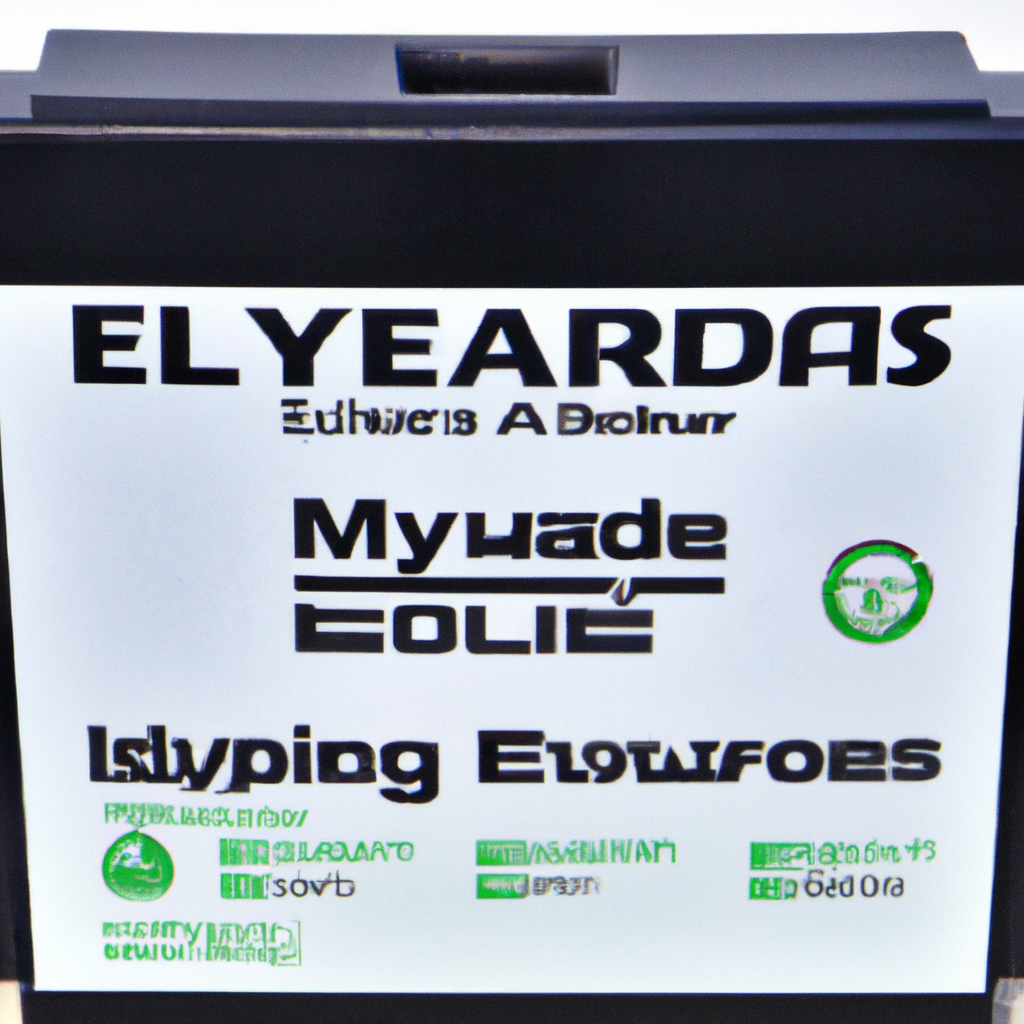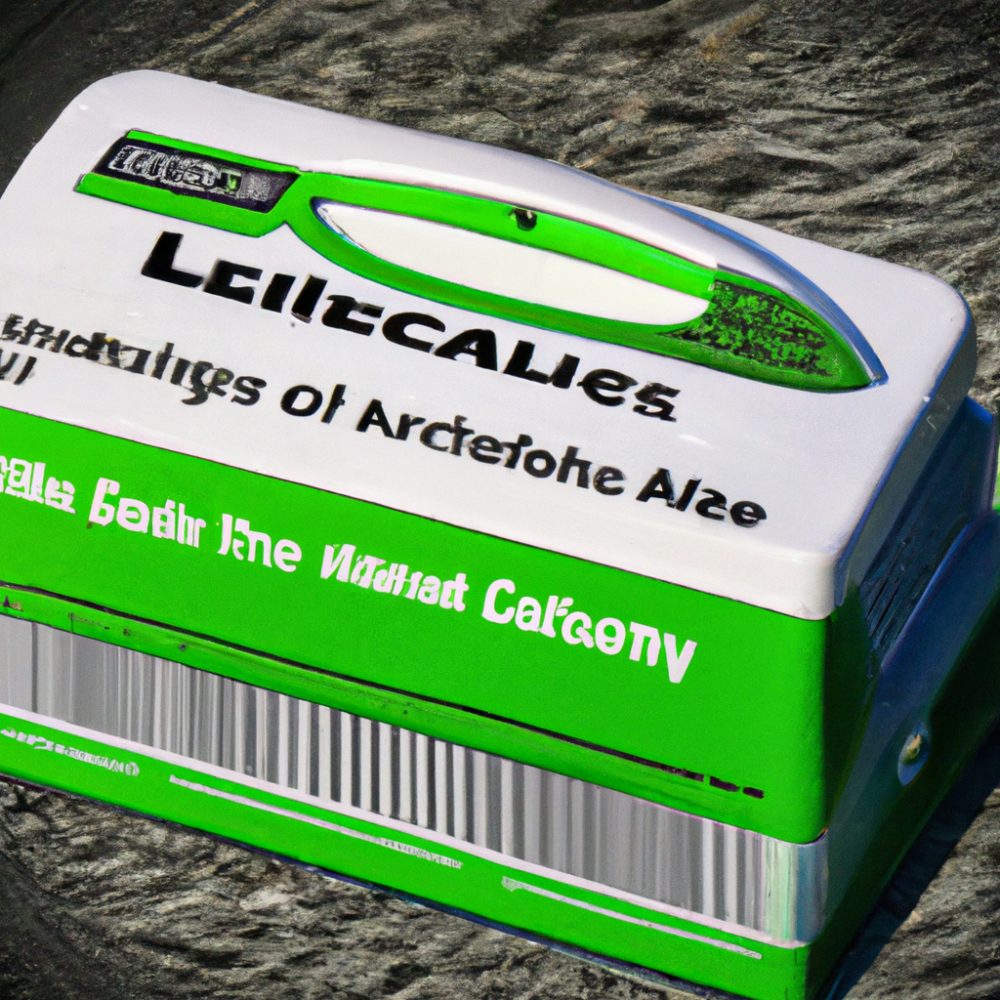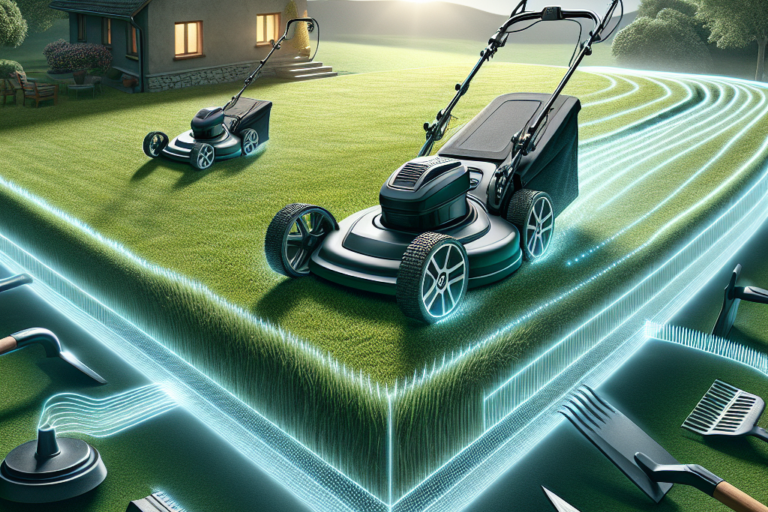Are you considering purchasing an electric mower but unsure about the lifespan of its battery? In this article, we will explore the average lifespan of an electric mower’s battery, providing you with valuable insights to help you make an informed decision. Whether you are a seasoned gardener or embarking on a new lawn care journey, understanding the lifespan of an electric mower’s battery is essential in ensuring your investment is not only efficient but also durable. So, let’s get right into it and find out how long you can expect your electric mower’s battery to last!
Battery Types for Electric Mowers
When it comes to electric mowers, there are several different battery types to choose from. The most common ones are lithium-ion batteries, lead-acid batteries, and nickel-cadmium batteries. Each of these battery types has its own strengths and weaknesses, so it’s important to understand them before making a decision.
Lithium-ion Batteries
Lithium-ion batteries are a popular choice for electric mowers due to their high energy density and long lifespan. These batteries are known for their ability to hold a charge for a long period of time and provide consistent power output. They are also lightweight, which makes them ideal for maneuvering the mower easily. Additionally, lithium-ion batteries do not suffer from memory effect, meaning they can be recharged at any time without negatively affecting their future performance.
Lead-Acid Batteries
Lead-acid batteries have been used in electric mowers for quite some time. They are known for their affordability and reliability. However, lead-acid batteries are heavier compared to other battery types and require regular maintenance, such as checking the water levels and cleaning the terminals. They also have a shorter lifespan compared to lithium-ion batteries. Despite these drawbacks, lead-acid batteries can still provide sufficient power for smaller yards.
Nickel-Cadmium Batteries
Nickel-cadmium batteries, also known as NiCad batteries, have been used in electric mowers for many years. They are known for their durability and ability to withstand extreme temperatures. NiCad batteries are also relatively affordable compared to lithium-ion batteries. However, they are heavier than lithium-ion batteries and have a limited lifespan. These batteries are often being phased out due to the introduction of more advanced battery technologies.
Factors Affecting Battery Lifespan
The lifespan of an electric mower’s battery can vary depending on several factors. It’s important to be aware of these factors in order to maximize the longevity of your battery and ensure optimal performance.
Usage
One of the main factors that can affect the lifespan of an electric mower’s battery is usage. The more frequently you use your mower, the more strain it puts on the battery. If you have a larger yard and require longer mowing sessions, you may need to consider a battery with a larger capacity to accommodate your needs.
Charging Habits
Another important factor to consider is your charging habits. Overcharging or undercharging the battery can negatively impact its lifespan. It is recommended to follow the manufacturer’s guidelines and instructions for charging your electric mower’s battery. Charging the battery to its full capacity and avoiding leaving it discharged for extended periods of time can help prolong its lifespan.
Temperature
Extreme temperatures can affect the performance and lifespan of your electric mower’s battery. High temperatures can cause the battery to degrade faster, while low temperatures can reduce its capacity temporarily. It is advisable to store your mower and its battery in a cool and dry place, especially during the winter months. Avoid exposing the battery to direct sunlight or extreme heat, as this can lead to irreversible damage.
Maintenance
Regular maintenance plays a crucial role in prolonging the lifespan of your electric mower’s battery. This includes keeping the battery clean and inspecting it for any signs of damage or corrosion. Cleaning the battery terminals and ensuring a secure connection can help optimize its performance. Additionally, following the manufacturer’s maintenance recommendations, such as lubricating the mower’s moving parts or replacing worn-out components, can contribute to a longer battery lifespan.

Average Lifespan of Electric Mower Batteries
The lifespan of electric mower batteries can vary depending on the type of battery used. Here’s a breakdown of the average lifespan for each battery type:
Lithium-ion Batteries
Lithium-ion batteries typically last between 3 to 5 years with regular usage and proper maintenance. With advancements in battery technology, some lithium-ion batteries may have an even longer lifespan. However, it’s important to note that the lifespan can be influenced by the specific brand, quality, and usage patterns.
Lead-Acid Batteries
Lead-acid batteries generally have a shorter lifespan compared to lithium-ion batteries. On average, they last between 1 to 3 years. However, with proper care and maintenance, they can potentially last longer. It’s important to periodically check the water levels and ensure a good charging routine to maximize the lifespan of the lead-acid battery.
Nickel-Cadmium Batteries
Nickel-cadmium batteries, similar to lead-acid batteries, have a shorter lifespan compared to lithium-ion batteries. On average, they last between 2 to 4 years. However, as mentioned earlier, nickel-cadmium batteries are being phased out due to the development of newer battery technologies such as lithium-ion.
Tips to Maximize Electric Mower Battery Lifespan
To maximize the lifespan of your electric mower’s battery, there are several tips and best practices to keep in mind:
Proper Charging
Follow the recommended charging guidelines provided by the manufacturer. Avoid overcharging or undercharging the battery. It’s generally best to charge the battery to its full capacity and avoid leaving it discharged for extended periods of time. This will help maintain the battery’s health and improve its overall durability.
Avoid Over-discharge
Try to avoid completely discharging the battery before recharging it. It’s recommended to recharge the battery before it reaches a critically low level to prevent excessive strain on the cells. This can contribute to prolonging the battery’s lifespan and maintaining optimal performance.
Storage Tips
When storing your electric mower and its battery, ensure it is kept in a cool and dry place. Extreme temperatures can impact the battery’s performance and longevity. It’s also important to remove the battery when the mower is not in use for an extended period. This prevents any potential drainage and ensures the battery remains in good condition.
Regular Cleaning and Inspection
Regularly inspect and clean the battery and its terminals to ensure optimal performance. Remove any debris or dirt that may have accumulated on the battery or mower. Inspect the battery for any signs of damage, corrosion, or leakage. Address any issues promptly to prevent further damage and maintain the battery’s lifespan.
By following these tips and implementing good battery management practices, you can maximize the lifespan of your electric mower’s battery. This will not only save you money in the long run but also ensure uninterrupted performance when it comes to maintaining your lawn. Remember to always refer to the manufacturer’s guidelines and recommendations for your specific electric mower and battery to achieve the best results. Happy mowing!






